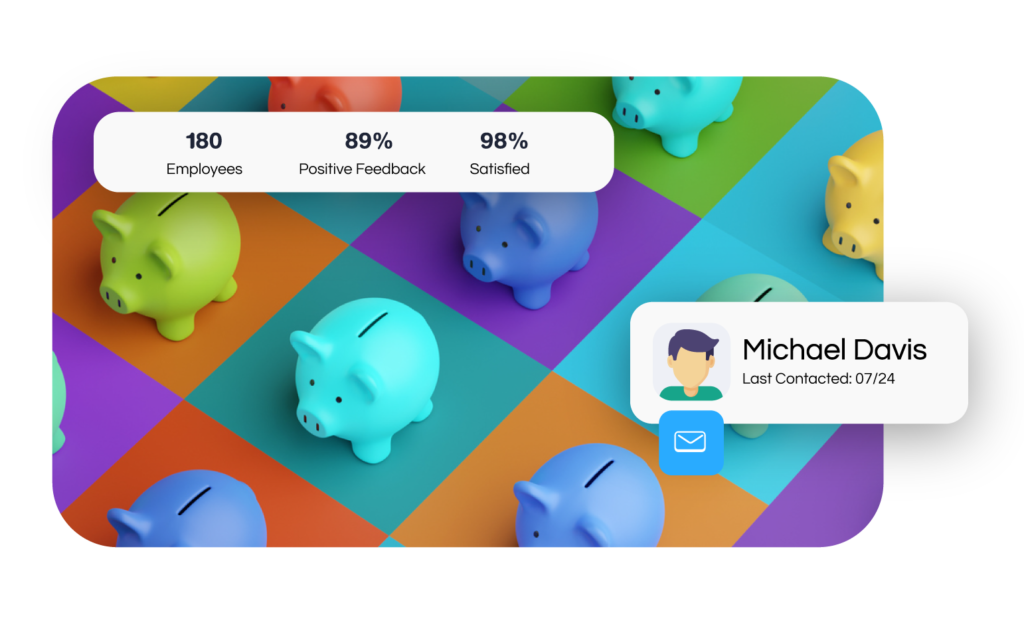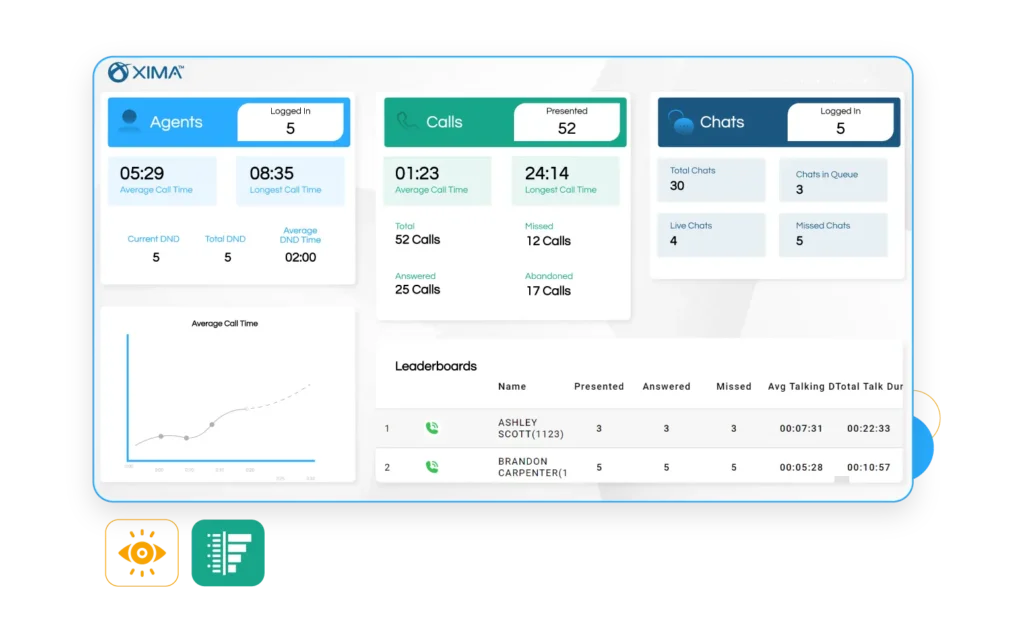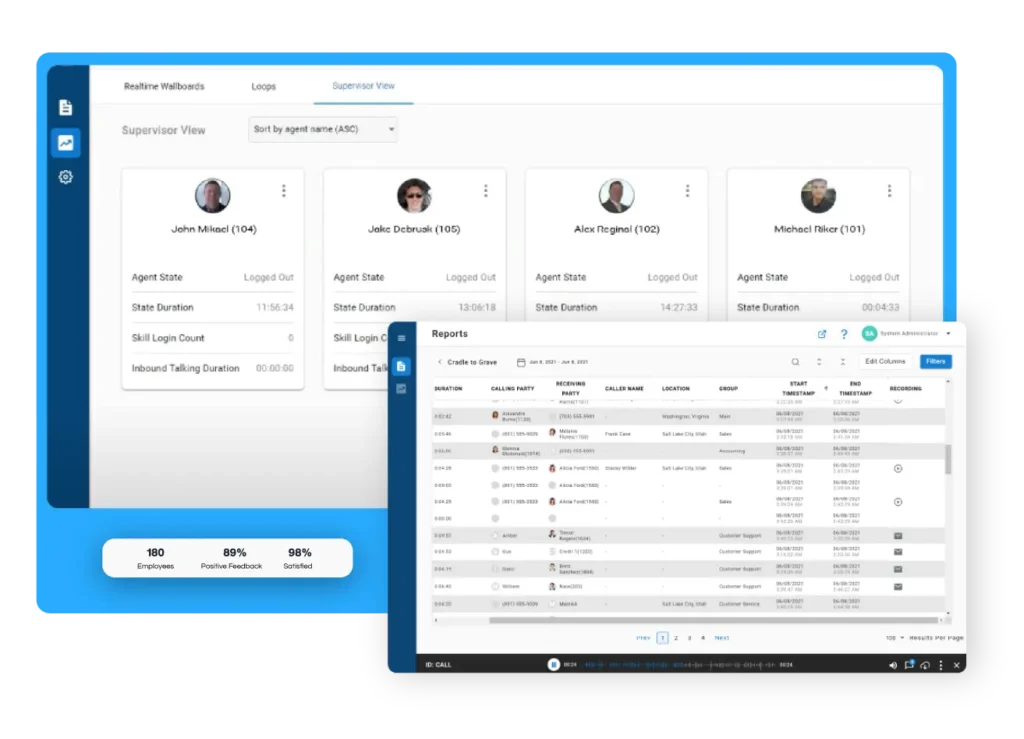Affordable AI-Driven Analytics for Small Contact Centers
Discover the best AI-driven analytics tools for small businesses, offering affordable insights to improve customer service and boost team efficiency.

In an era where every spend must be justified, from massive upfront investments to daily running costs, fully comprehending and effectively communicating your contact center’s Return On Investment (ROI) can seem like an elusive target. Let’s deconstruct ROI for call centers and look at practical strategies to measure and optimize it.
The customer service industry is facing mounting expectations to contribute to net customer revenue. However, legacy systems often fail, and an alarming rate of employee burnout and turnover suggests that resources, particularly people’s time and skills, aren’t efficiently aligned with the strategic vision. This discrepancy raises an essential question – how can organizations ensure their investments are optimized to help call center agents deliver exceptional customer experiences?

Success in a contact center is multifaceted. It’s a strategic commitment that requires real-time data, comprehensive metrics, and a clear way to demonstrate ROI. However, building this framework is only the beginning. You need stakeholders on board, IT solutions aligned, and Customer Relationship Management (CRM) integrations that tell a comprehensive story of the returns from your contact center.
Before you can measure ROI, you must define what success looks like. Are you looking to reduce costs, improve customer satisfaction, increase sales, or foster a healthier workplace culture? Each objective requires a tailored set of performance indicators. Once you’ve set benchmarks, it becomes easier to nail down a strategy.
Categories to Consider
Factors to Incorporate
We’ll go through a detailed breakdown of how to calculate key metrics such as Cost Per Call, First Call Resolution, and Customer Satisfaction Score. In addition, we will offer practical insights into which tools and technologies can support your efforts in data granulation and metric extraction.
Ensuring your ROI initiative is targeted and effective requires answering a series of critical questions:

Measuring the right metrics can mean the difference between an optimized contact center and a liability. In this section, we’ll explore essential KPIs that directly impact your contact center’s ROI.
Agent-Related Metrics
Customer Satisfaction Metrics
Technology and Operational Metrics
Financial Metrics
To illustrate strategies that translate into tangible ROI, we’ll address three key areas: improving productivity, boosting revenue and retention, and strategic investment decisions.

To boost productivity, consider the following initiatives:
Revenue and Retention are often neglected in the ROI conversation. However, they are pivotal to long-term success. Prioritize initiatives that:
When looking at investing in new tech, weigh the one-time set-up cost against future benefits to see how your installation can ultimately pay for itself. Be sure to do your research and look at the data before you invest, and stay away from anything that could make you fall into “tech debt” – where fast solutions lead to costly updates and reconfiguration later on.
Calculating Real ROI
In this detailed segment, we’ll provide a step-by-step breakdown of how to calculate the ROI for your contact center. Understand how to quantify your annual benefits, deductions for ongoing costs, and what’s left as net ROI. We will then explore how to interpret and communicate these figures to your organization’s leadership.
Using a hypothetical contact center, we’ll walk through an example of how to calculate the annual net benefit and ROI for a new technology investment.
Investing time in understanding the financial implications of your contact center can unlock significant value and validate your team’s efforts.
The Contact center as a Strategic Asset
By now, it’s clear that a well-run contact center isn’t an operational necessity but a strategic asset that can drive significant ROI for your business.
By applying the frameworks and strategies outlined in this guide, contact center leaders can confidently present their facilities and operational models as the engines of customer-centric growth they are meant to be. Whether you’re a seasoned professional or new to the contact center industry, the time to act is now. This investment in time and technology heralds a new era where contact centers not only serve customer needs but actively contribute to the bottom line. It is a call to action, and the playbook is yours.
Ready to embark on this journey today? Contact Xima to see how our solutions can transform your contact center into an efficient asset that increases revenue.
Discover the best AI-driven analytics tools for small businesses, offering affordable insights to improve customer service and boost team efficiency.
As manufacturing operations grow more complex, customer service can no longer operate as a disconnected function. Service teams today must manage inquiries tied directly to

Join us for an exclusive webinar as we dive into our latest product releases for IVR, MMS Messaging, and our Social Media Integration.

Thursday, September 12, 2024 | 11:00AM ET